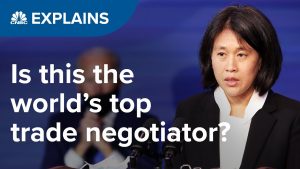
The US foreign policy lexicon has changed. It used to be Asia-Pacific. Now for the Biden Administration it is all about Indo-Pacific. Initially I started this post in the following way: “Please, enough of the Indo-Pacific. Listen to the Biden Administration and it seems that that is all there seems to be in Asia.” Well, that is where the Biden Administration seems to be. Do I think US strategic actions really ‘sucks in India’, one of the world’s most elusive allies, probably not. But I’ll leave the Biden officials to figure that out. So, they will continue to trumpet, ‘Indo-Pacific’. Many of us will continue to use, ‘Asia-Pacific’.
More importantly, however, let’s turn our attention to the substance of Biden strategic policy in this key, if not the key, region in the international system. Our Brookings colleague, Ryan Hass at EAF briefly described Biden foreign policy efforts in the region over the last year – hard to believe that it is only a year and a bit:
America is back’, Joe Biden proclaimed in his first address as president to a global audience. Over the year that followed, the Biden administration delivered a mixed bag in its approach to the Indo-Pacific — several bold strategic strokes, greater than expected continuity with the Trump administration on China policy and timidity on trade policy.
A larger challenge for the Biden administration will be its absence of an economic agenda. They have announced plans to release an Indo-Pacific economic framework in 2022. Given that the framework reportedly will be non-binding and will not include trade or investment liberalisation, it may not get a lot of uptake, particularly when the region’s focus is on realising benefits from the Regional Comprehensive Economic Partnership and expanding the Comprehensive and Progressive Agreement for Trans-Pacific Partnership.
This is the heart of the dilemma in the Biden approach to the Indo-Pacific. Given the growing influence of China, does the Biden policy focus on the geostrategic, or on the regional and global economic. Opinion is clearly divided. Maybe the most surprising is Alan Beattie, the Financial Times trade specialist and opinion columnist. I would have believed, especially given some of his recent trade reviews that he would have strongly urged a focus on the economic but I was wrong. Here he is on February 2nd in an FT article, titled: “The US doesn’t need CPTPP to assert itself in the Asia-Pacific”:
As for geopolitical clout, recent experience suggests actual firepower is more important than the economic kind.
Trade deals don’t automatically mean political alignment or influence. …
None of the US’s strategic capabilities — military might, security deals like the Australia-UK-US agreement, cyber security expertise, intelligence-sharing, imposing harsh financial sanctions via the dollar payments system— require CPTPP membership. And all are surely more important in projecting American influence.
It’s true that US economic diplomacy over the past decade has been comically weak and inconsistent. It has been undermined by the excessive fear of trade deals among the American public, encouraged by lobbies like organised labour and the steel industry. But its ineptitude over the CPTPP should not lead to a counsel of despair. Trade deals are important, but they are neither necessary nor sufficient for American foreign policy to assert itself in the Asia-Pacific.
